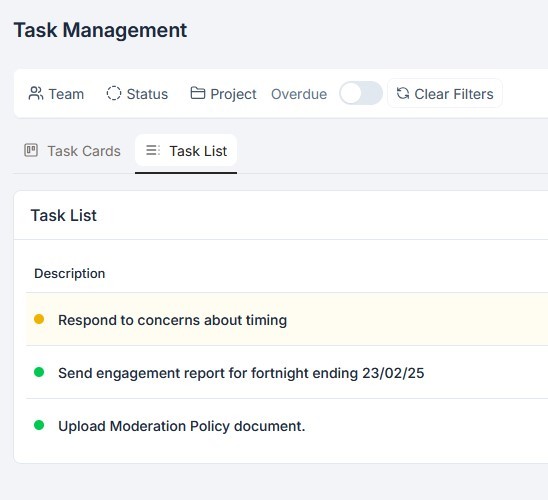Local Level
The Sydney Green Spaces Initiative
Topic: Enhancing urban green spaces for community well-being and environmental sustainability.
Process: The City of Sydney launched a comprehensive consultation program, inviting local residents, environmental experts, and stakeholders to share their visions and suggestions for expanding and improving urban green spaces. Workshops, surveys, and public forums were conducted both online and in-person to gather a wide range of inputs.
Outcomes: The program led to the development of several new parks and the revitalization of existing ones, significantly increasing public green space in Sydney. This initiative not only improved local biodiversity but also provided residents with more opportunities for recreation and relaxation, contributing to overall community well-being.
State Level
Victoria’s Renewable Energy Transition
Topic: Transitioning to renewable energy sources to combat climate change and promote sustainability.
Process: The Victorian government engaged communities and stakeholders through a series of town hall meetings, online forums, and targeted workshops. The aim was to gather insights and address concerns regarding the shift towards renewable energy sources, such as wind and solar power.
Outcomes: The consultation informed the creation of favorable policies and funding models that accelerated the adoption of renewable energy. It resulted in significant investment in renewable projects, reducing the state’s carbon footprint and creating thousands of jobs in the green economy.
Federal Level
National Health Services Reform
Topic: Improving the accessibility and quality of health services across Australia.
Process: This ambitious program involved a multi-tiered engagement strategy, including national surveys, stakeholder interviews, public submissions, and a series of public discussions facilitated by health experts and policymakers.
Outcomes: The feedback gathered through this comprehensive process led to significant reforms in the health sector, including the introduction of new mental health services, better access to medical care in rural and remote areas, and the implementation of cutting-edge health technology solutions.
How Quicker Elevates Engagement and Consultation
Quicker stands at the forefront of enhancing public engagement processes for governments across all levels. By leveraging advanced digital tools and data analytics, Quicker streamlines the consultation process, making it more accessible, efficient, and effective.
- Accessibility: Quicker’s intuitive platform enables wider community participation by making it easier for individuals to contribute their views and feedback, anytime and anywhere.
- Efficiency: With real-time data collection and analysis, Quicker helps governments quickly understand community sentiments, identify trends, and address concerns, significantly reducing the time from consultation to action.
- Effectiveness: By providing a structured framework for engagement, Quicker ensures that all voices are heard and considered, leading to more informed decision-making and policies that better reflect the community’s needs.
In conclusion, as Australian governments continue to prioritize stakeholder engagement and community consultation, platforms like Quicker are proving indispensable. By enhancing the way governments communicate with and listen to their constituents, Quicker is not only improving the immediacy and quality of public engagement but is also setting a new standard for how democratic processes can be optimized in the digital age.









